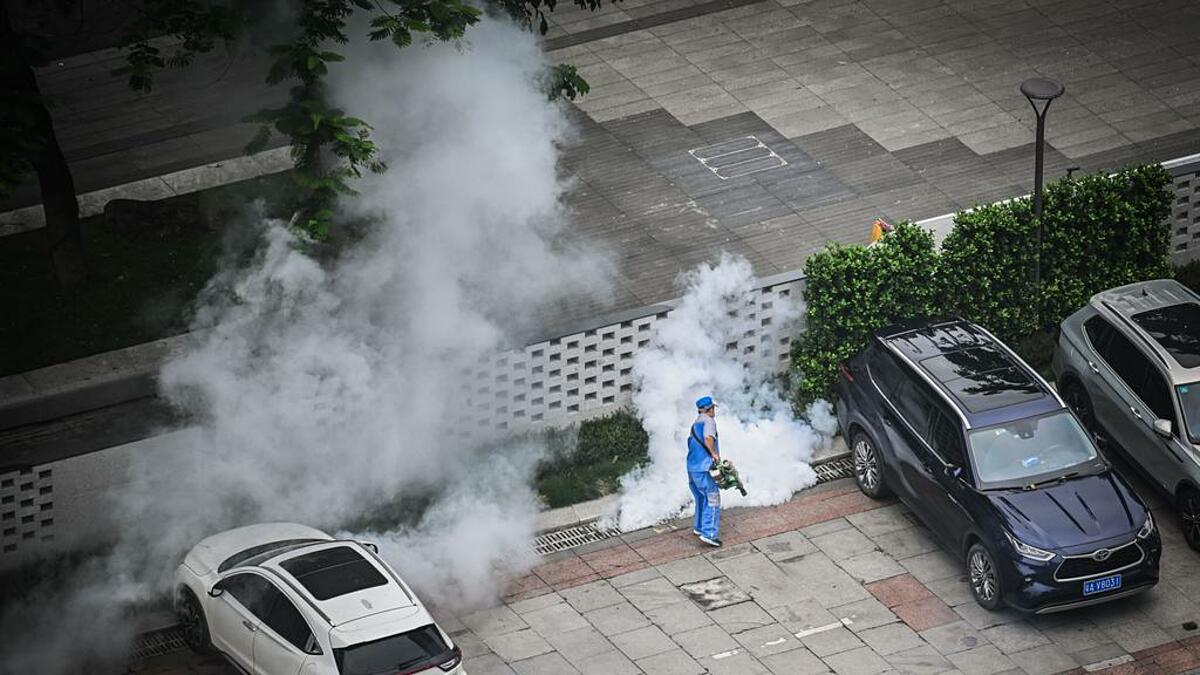The majority of cases are concentrated in Guangdong province, with Foshan city the most severely affected after the first infection was confirmed on 3/8, according to the New York Times.
Although Chikungunya is not fatal and is only transmitted through the bite of infected Aedes mosquitoes, those infected are placed in isolation wards in hospitals, under mosquito nets for at least a week or until they test negative. Some neighboring localities previously required people coming from Foshan to self-isolate for 14 days, but this order has been lifted.
Authorities have implemented drastic measures to control the outbreak. The military is spraying insecticides in public areas, while local authorities are releasing "elephant mosquitoes" whose larvae kill disease-carrying mosquitoes and releasing thousands of mosquito-eating fish into ponds and lakes in Foshan.
Residents are required to get tested if they experience symptoms and eliminate stagnant water around their homes, where mosquitoes breed, or face fines of up to 1,400 USD. Some households have had their electricity cut off for non-cooperation, and authorities are using drones to detect potential stagnant water.
Kang Min, director of the Guangdong Provincial Center for Disease Control and Prevention (CDC), said the number of new cases in the past week has decreased compared to the same period, suggesting the outbreak is showing signs of slowing down. However, experts warn that the prolonged rainy season and Guangdong's high level of international connectivity remain favorable factors for the virus to easily return and spread.
 |
Medical staff spray mosquito repellent in the parking lot of a building in China. Photo: VCG |
Medical staff spray mosquito repellent in the parking lot of a building in China. Photo: VCG
According to the US Centers for Disease Control and Prevention (CDC), there is currently no specific treatment for Chikungunya. The disease causes symptoms such as fever, joint pain, headache, muscle pain, swelling, and rash, with most people recovering within a week.
The Chinese government's drastic response has drawn comparisons to the Covid-19 pandemic that broke out in 2020. At that time, the country implemented strict restrictive measures such as nationwide lockdowns and widespread testing.
Ren Chao, a professor at the University of Hong Kong, who studies the impact of climate change on Chikungunya, said that mosquitoes carrying the virus can breed even in small puddles of water like bottle caps.
The US CDC issued a Level 2 travel advisory for China on 5/8, urging travelers to take "enhanced precautions." This advisory is part of a 4-level system, with Level 4 being the highest, recommending complete avoidance of travel. The agency also advises Americans traveling to China to get vaccinated against Chikungunya. There are currently two vaccines licensed for use in the US.












